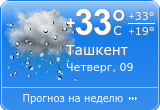


The Literary Museum of Yesenin
The Literary Museum of Yesenin is a small museum. It is dedicated to the work of the Great Russian poet, Sergei Yesenin.
The museum was founded in the first month of summer in 1981. Seven years later, in the winter of 1988, the Sergey Yesenin Museum got the status of a national literary museum.
The museum was founded in the first month of summer in 1981. Seven years later, in the winter of 1988, the Sergey Yesenin Museum got the status of a national literary museum.
Sergei Yesenin is not only a Russian poet and a representative of new peasant lyrics and poetry, as well as creativity in imagism. Yesenin was always trying to comprehend the "communal rearing Rus", but it felt like a poet's "golden log hut."
Yesenin’s letters tell us about the very difficult life of the poet. All that was happening to him and around him is reflected in his lyrics. Along with his love for life, home and living things will never leave the life of the Great Russian poet and will find their place in his work.
The museum exposition includes 3,000 exhibits. The museum's collection consists of his collected works, memorabilia from friends and loved ones, recordings, rough work, autographs, and other.
Rare documents and valuable manuscripts were handed over to his family and relatives. For example, this is the first collection of "Radunica" (1916), "Treryadnitsa," "Confessions of a Hooligan" (1921), "Moscow Taverns" (1924) and, of course, "Pugachev" (1921).
From 1992 until today, the Public Council of the museum publishes a news bulletin, entitled "World of Esenin." Now they have published 10 editions of the newspaper format and eight issues in brochure format.
Newscasts filled with interesting events and dates from the life and work of the poet.
In a special lecture room of the Sergei Yesenin Literary Museum, they often host themed evenings where fans of Yesenin's prose read poems, hold exhibitions, or host musical evenings.
The building of the Literary Museum is "hidden" from the eyes of administrative and residential buildings. Only with the help of pointers will you find the way to it. You can also book an excursion here.
Our travel agency, "Orient Mice," will be happy to provide you with transport, hotel, and professional guides who will show you not only the city, but also tell you amazing stories about the architectural monuments of Tashkent.
Yesenin’s letters tell us about the very difficult life of the poet. All that was happening to him and around him is reflected in his lyrics. Along with his love for life, home and living things will never leave the life of the Great Russian poet and will find their place in his work.
The museum exposition includes 3,000 exhibits. The museum's collection consists of his collected works, memorabilia from friends and loved ones, recordings, rough work, autographs, and other.
Rare documents and valuable manuscripts were handed over to his family and relatives. For example, this is the first collection of "Radunica" (1916), "Treryadnitsa," "Confessions of a Hooligan" (1921), "Moscow Taverns" (1924) and, of course, "Pugachev" (1921).
From 1992 until today, the Public Council of the museum publishes a news bulletin, entitled "World of Esenin." Now they have published 10 editions of the newspaper format and eight issues in brochure format.
Newscasts filled with interesting events and dates from the life and work of the poet.
In a special lecture room of the Sergei Yesenin Literary Museum, they often host themed evenings where fans of Yesenin's prose read poems, hold exhibitions, or host musical evenings.
The building of the Literary Museum is "hidden" from the eyes of administrative and residential buildings. Only with the help of pointers will you find the way to it. You can also book an excursion here.
Our travel agency, "Orient Mice," will be happy to provide you with transport, hotel, and professional guides who will show you not only the city, but also tell you amazing stories about the architectural monuments of Tashkent.


